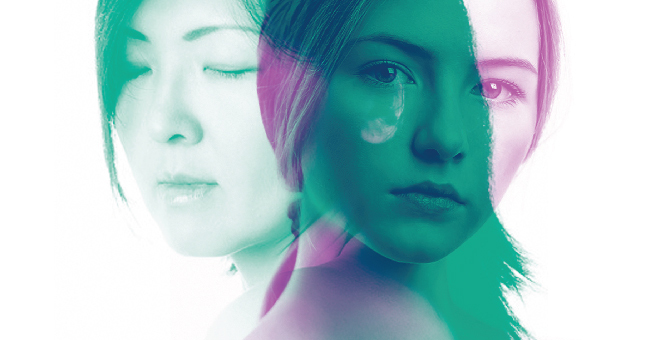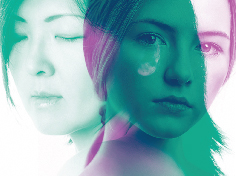
"Me Too"
Lydia Cruttwell (MDiv '12) lives and works in South Vancouver, where she is pastor of First United Mennonite Church.
A Hospital Visit
On August 11, 2014, when the news of Robin Williams’s death by suicide first emerged, I was sitting in a hospital psychiatric unit.
I myself was not a patient there. Instead, I was “the pastor” visiting a congregant who had checked herself in a few days before. But my enduring memory of that visit was realizing that the line between us—pastor and patient—was not so thick as one might expect. In fact, on that particular day, it was very thin indeed.
The congregant I was visiting was in serious distress, with ongoing physical, mental, and familial issues. I went into that hospital very aware of my “professional” role—I was determined to offer her my support and care, and to remind her that she was loved by God, as any good pastor would do. But I also went into that hospital carrying a “secret” —that I too was mentally unwell, and in no small need of professional help of my own.
It felt a bit surreal to walk into that unit, to know that I was being seen as “healthy” while the woman I was visiting was “ill.” And to a certain extent, that was true—her life was falling apart, and she’d lost the ability to function, while I was still managing my internal chaos fairly well, even if it took a lot of extra effort to do so. My own mental illness was relatively simple—ongoing, mild-to-moderate depression—while she and the other patients were dealing with a host of much more severe issues: suicidality, schizophrenia, borderline personality disorder, and so on.
The congregant and I sat in a corner of the common room, and I struggled to find a way to speak the great truths of our faith to her—steadfast love, hope, worth given through our identity in Christ—without it sounding like mere platitudes. The conversation felt stilted, awkward, unsatisfying. What do you want me to say? I silently pleaded to God. Am I being of any help here at all?
Then, suddenly, a news update flashed on the TV in the corner: “Robin Williams found dead, of apparent suicide.” Another patient watching the TV gasped, drawing our attention to it. And my congregant said, her voice full of compassion, “Oh, that poor man. I know just how he feels.” And I thought, but didn't say, You know what? I do too. It wasn't that either of us wanted to kill ourselves that very moment, but we understood. We understood why it was that someone struggling with mental illness their whole life might get tired. We understood that sometimes living is a battle, and sometimes you just don't want to fight anymore.
One of the things I remember most vividly about my time at Regent College was a lecture on mental health from Sharon Smith (co-founder of Sanctuary Mental Health Ministries). Sharon told us that mental health is not a binary state, but rather a spectrum—from flourishing and wellbeing at one end to severe mental illness at the other. Somewhere in the middle of the spectrum is a line which divides being “mentally well” from being “mentally ill,” and we all cross that line at some point in our lives, whether from depression, burnout, midlife crisis, or personal tragedy. Some of us cross that line many times, again and again.
That day, as I sat with a congregant in trouble, as I heard the news of Robin Williams’s death, and as I could no longer ignore my own fragile mental state, I understood the truth of what Sharon had said in a deeper way. The people in that hospital unit were not “the other” —they were my brothers and sisters, all of us struggling to cross that line once more and move into the light of greater health and human flourishing.
I’m not sure I ended up saying anything helpful to my congregant in that visit—and if I did, I don’t know what it was—but I know I received a gift from God that day. The gift of being able to recognize my own experience in the experiences of others, of knowing that no matter where I was on the mental health spectrum, I was not alone. The gift of being able to say, even if only in my own head, Me too.
Me too.


